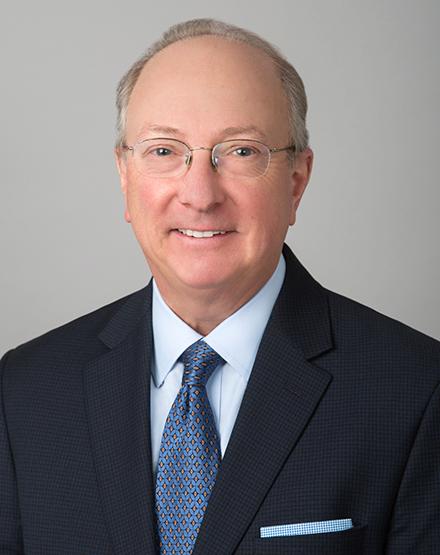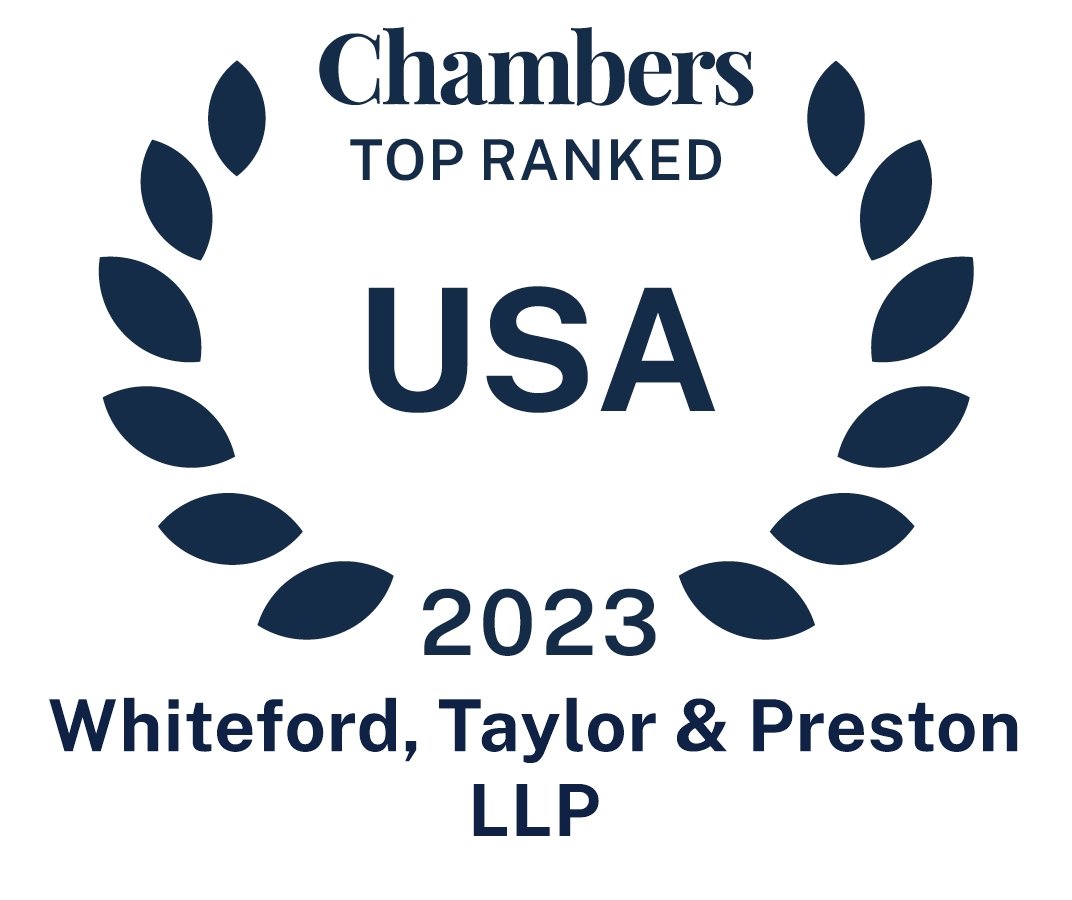Author: “What You Need to Know About the FEC’s Prior Approval Rule,” American Society of Association Executives (ASAE), October 14, 2022
Presenter: “How State and Local Legislative/Regulatory Advocacy Can Build Association Value,” American Society of Association Executives (ASAE), August 22, 2022
Author: "Beware of Contingent Fee Restrictions When Your Association Hires a Lobbyist," American Society of Association Executives (May 3, 2022)
Panelist: "Ask Us Anything! Answering Your Lobbying Compliance Questions," Webinar (June 3, 2021)
Author: "Good Counsel: Agents, Principals, and Fara Risks," Associations Now (November 1, 2020)
Presentation: "Corporate and Association Political Activity: 2020 Pre-Election Compliance Tips," Webinar, (October 2020)
Quoted: "Balance Free Expression and Office Harmony in an Election Year," ASAE (2016, updated October 2020)
Presentation: "Corporate and Association Political Activity: Key 2020 Compliance Issues," Webinar, (March 2020)
Presentation: "Exempt Organizations 2019 Year in Review and Key Compliance Issues for the 2020 Election Year," Association of Corporate Counsel National Capital Region Webinar (February 2020)
Presentation: "Election Year Political Law Compliance Issues for Charitable Organizations," Consortium for Citizens with Disabilities (January 2020)
Presentation: "Exploring the Opportunities and Risks of Political Activity," ASAE Association Law Symposium (June 2019)
Author: "Nonprofit Lobbying: The Rules You Need to Know," ASAE (February 2017)
Presentation: "Supporting Candidates, Growing Your PAC & Increasing the Effectiveness of Your Government Affairs Program" ASAE (May 2016)
Author: "Election 2016: Know the Rules for Supporting Candidates," ASAE (March 2016)
Author "Citzens United, Super PACs, and Corporate Spending on Political Campaigns: How Did We Get Here and Where Are We Going?" The Federal Lawyer (June 2012)
Author "Managing Risks of Corporate Political Activity," Staffing Success (November/December 2009)
Author "FEC Must Protect Commerical Speech From the Excesses of McCain-Feingold Bill," Advertising Age (October 15, 2007)
ARTICLES
February 6, 2023
The Federal Election Commission has adjusted some of the individual and PAC contribution limits for the 2023-2024 election cycle.
The amount that individuals and non-multicandidate PACs can give to federal candidates has been increased by $400 to $3,300 per election to each federal candidate. Since primary and general election contests are viewed as separate “elections,” an individual or a non-multicandidate PAC may now contribute a total of $6,600 to a federal candidate.
October 24, 2022
Originally published by ASAE here
The Federal Election Commission’s “prior approval rule” limits an association’s ability to solicit contributions from employees of its corporate members. Associations seeking to grow their federal PACs need to understand which activities are covered by this rule, along with the steps they can take to mitigate risks.
June 3, 2022
A new Maryland law, which will go into effect on July 1, 2022, requires all organizations that pay lobbyists at least $500 in compensation to file reports on a semiannual basis disclosing contributions to candidates for Governor, Lt. Governor, Attorney General, Controller and Members of the General Assembly. Reports must be filed even if no political contributions are made during a six-month reporting period (November – April and May – October). As a result, many corporations and associations that employ or retain lobbyists will now have Maryland reporting obligations.
May 4, 2022
Many states prohibit lobbyists from receiving contingent fees, and those bans can be broader than they appear. Here’s a look at scenarios that could run afoul of state restrictions, as well as some precautions your association can take when hiring a lobbying firm.
March 19, 2021
In a PPP Frequently Asked Questions release, the SBA stated that for purposes of determining the eligibility of section 501(c)(6) organizations for First Draw and Second Draw PPP Loans, “lobbying activities” is defined by the Lobbying Disclosure Act, rather than the Internal Revenue Code.
February 22, 2021
Under the Economic Aid Act, trade associations, chambers of commerce and other 501(c)(6) organizations are now eligible to receive PPP loans provided that lobbying is not more than 15% of an applicant’s activities and the cost of its lobbying did not exceed $1 million in the most recent tax year prior to February 15, 2020.
February 8, 2021
The Federal Election Commission has adjusted some of the individual and PAC contribution limits for the 2021-2022 election cycle.
February 8, 2021
On his first day in office, President Biden signed an Executive Order that imposes ethics obligations on appointees to his Administration. While the Order has some similarities with the ethics Executive Orders issued by Presidents Trump and Obama, there are several new provisions of importance to individuals that go to work for the new Administration as well as to organizations that interact with Biden Administration appointees.
August 24, 2020
On August 21, 2020, the US Court of Appeals for the District of Columbia affirmed a 2018 US District Court decision holding that the FEC’s independent expenditure (“IE”) disclosure rule was contrary to law.
July 23, 2020
Associations must understand certain key fundraising rules in order to grow the PAC and avoid common missteps. The following is a list of the top five compliance tips for association PACs this election year.
November 25, 2019
Another election year is upon us, and once again federal and state candidates are on track to raise and spend unprecedented sums for their election efforts. That means corporations, trade associations, 501(c)(4) advocacy organization, and their leaders, members and donors will be inundated with political contribution requests. They may also be asked to help candidates and political parties in other ways, such as hosting fundraisers or providing in-kind contributions of goods or services.
For many organizations, political engagement is not an option – decisions by federal, state and local officials may be critical to their success. Any organization engaged in political activity must understand the basic rules of the road in order to avoid common pitfalls. Here are our Top 5 compliance tips for addressing the political law risks facing your organization this election year.
April 17, 2019
As the April 22 deadline approaches for submitting quarterly federal lobbying reports, organizations that employ or retain lobbyists must be aware of new registration and reporting obligations.
February 2019
Run down this checklist of lobbying compliance tips before you begin this year’s advocacy activities.
August 17, 2018
In an opinion released on August 3rd, US District Court Judge Beryl Howell greatly expanded the FEC donor disclosure reporting requirements for independent groups – like Section 501(4) and 501(c)(6) organizations – that sponsor independent expenditures and other candidate advocacy communications. The court delayed the implementation of its ruling for 45 days to give the FEC time to draft interim rules.
August 17, 2018
Nonprofit organizations are often overly cautious in speaking out about their causes and interacting with candidates in election years for fear of violating a complex set of laws and rules. You can and should participate in the election-year conversation. Here’s how.
July 27, 2018
On July 16, 2018, the IRS announced that it has eliminated the requirement for most nonprofit organizations to provide confidential donor information to the IRS on Schedule B to their annual IRS Form 990. Although limited in scope and with no impact on public transparency, the change has significant political ramifications and has ignited a firestorm of support and condemnation across the political spectrum. This includes a partisan Senate Finance Committee vote and delay in the Senate confirmation vote on the new IRS Commissioner.
January 19, 2018
DC Partner Jim Kahl and Nancy Bukar, Sodexo Vice President of Government Affairs & Assistant General Counsel, co-presented to The Association of Corporate Counsel (National Capital Region) in a webcast last Tuesday on “Election Year Corporate Political Activity: Understanding the Legal Risks and Strategic Opportunities.”
April 10, 2017
A recent article in Associations Now features DC-based political Law partners Jim Kahl and Jeff Altman. “Whether you see an opportunity to advance your agenda or a need to defend members’ interests, it’s wise to reexamine your government relations strategy right now,” says Kahl. “What we know now is that a Republican majority means organizations need to be ready to respond to bills immediately,” says Altman. “With the new Congress, legislation will be passed very quickly.”
March 29, 2017
The Federal Election Commission has made minor adjustments to some of the individual and PAC contribution limits for the 2017-2018 election cycle. The amount that individuals and non-multicandidate PACs can give to federal candidates remains at $2700 per election to each federal candidate. Since primary and general election contests are viewed as separate “elections,” an individual or a non-multicandidate PAC may contribute a total of $5400 to a federal candidate. The $5,000 per year individual contribution limit to PACs is also not affected.
February 6, 2017
Whether your organization has a long lobbying track record or is starting fresh with a new administration, you need to know how federal lobbying, tax, and gift rules will affect your advocacy work. Here's a primer for beginners and a refresher for veterans.
October 29, 2016
Whiteford, Taylor & Preston Political Law expert James Kahl was quoted this week in an article in the Boston Globe about potential campaign finance violations by a Massachusetts law firm.
October 26, 2016
The final weeks of the 2016 election season continue to offer unique opportunities to drive interest and support for your industry, profession or cause. Whatever your tax status, you have a constitutionally protected right to conduct a wide range of educational, issue advocacy and lobbying activities in order to engage your members, donors, the general public, policy makers, and candidates. Trade associations and social welfare organizations can do much more to help elect their preferred candidates. Although compliance with tax, election, ethics and lobbying laws can be challenging, they also offer opportunities, not obstacles, to generate interest and support for your public policy goals in these final days of the 2016 election season and beyond.
August 4, 2016
Every election year, corporations, associations, their PACs, and their leaders are asked to host or participate in fundraising events for federal candidates. All incorporated entities – corporations, trade associations, or advocacy organizations – are barred from making contributions (monetary or in-kind) to any candidate for federal office. As we enter the heart of the 2016 election year, corporation and association leaders must make sure that their organizations know the rules for participating in federal fundraising events or risk significant monetary penalties and adverse publicity.
May 19, 2016
Topics Include:
- Political Contributions
- Using & Growing Your PAC
- Role of Association Members
- Lobbying & Gift Risks
- Compliance & Strategic Takeaways
March 23, 2016
Elections pose abundant opportunities for associations to support candidates aligned with members' interests. But the law governing election-related activities by associations has shifted drastically in recent years. Before your organization supports or opposes political candidates, be sure you know the rules.
January 19, 2016
Another election year is upon us, and once again federal and state candidates are on track to raise and spend unprecedented sums for their election efforts. That means corporations, trade associations, 501(c)(4) advocacy organizations, their political action committees (“PACs”), leaders, members and donors will be inundated with political contribution requests. They may also be asked to help candidates and political parties in other ways, such as hosting fundraisers or providing in-kind contributions of goods or services.
NEWSLETTERS
August 15, 2023
James A. Kahl, a Partner at Whiteford Taylor & Preston and a Co-Chair of Associations, Nonprofits and Political Organizations Section, presents at a panel discussion for LMASE.
November 8, 2022
What You Need To know About the FEC's Prior Approval Rule
Protecting Against Increased Antitrust Risks in a More Aggressive Enforcement and LItigation Environment
O-1 Visa Issues
State Mandated Retirement Plans
Attorney Spotlight-Mark Franco
May 10, 2022
Beware of Contingent Fee Restrictions When Your Association Hires a Lobbyist
IRS Clarifies Royalty Income Considerations for Job Board Revenue
Responding to Exam Security Breaches
Virginia Exempts Property of Certain Charitable Single Member LLCs from Taxation
Employment Offer Letters
Introducing New ANPO Attorneys at Whiteford
Tax Reminder for Organizations
Recent and Upcoming Interviews
Upcoming Ask Us Anything! Session
August 13, 2020
Interpreting Force Majeure in the Era of COVID-19
Whiteford's COVID-19 Resource Page
Are YOU Ready for Your PPP Forgiveness Application?
Associations Creating Community Podcasts - Globally
Recent Presentations
Announcements
January 31, 2020
Does Our Association Website Need To Be ADA Compliant? It Depends!
Top Five Political Law Compliance Tips for 2020
PRESENTATIONS
March 7, 2024
As this election year heads into full gear, many nonprofit organizations will have questions about the types of advocacy, policy, lobbying, fundraising, outreach and electoral activities they and their employees may undertake to promote their mission and policy objectives.
August 15, 2023
James A. Kahl, a Partner at Whiteford Taylor & Preston and a Co-Chair of Associations, Nonprofits and Political Organizations Section, presents at a panel discussion for LMASE.
October 1, 2020
This 30-minute webinar highlights key political law compliance considerations for corporations and associations as we head into the end of a busy 2020 election season and as organizations assess their legislative priorities in Congress and state legislatures in the New Year.
March 31, 2020
The same political activity may involve federal, state and local laws. Understand the rules to identify opportunities and avoid risks and adverse publicity.
January 17, 2017
On January 13, WTP hosted a webinar on "Federal Lobbying & Ethics Rules in 2017: Is Your Organization Ready?"




